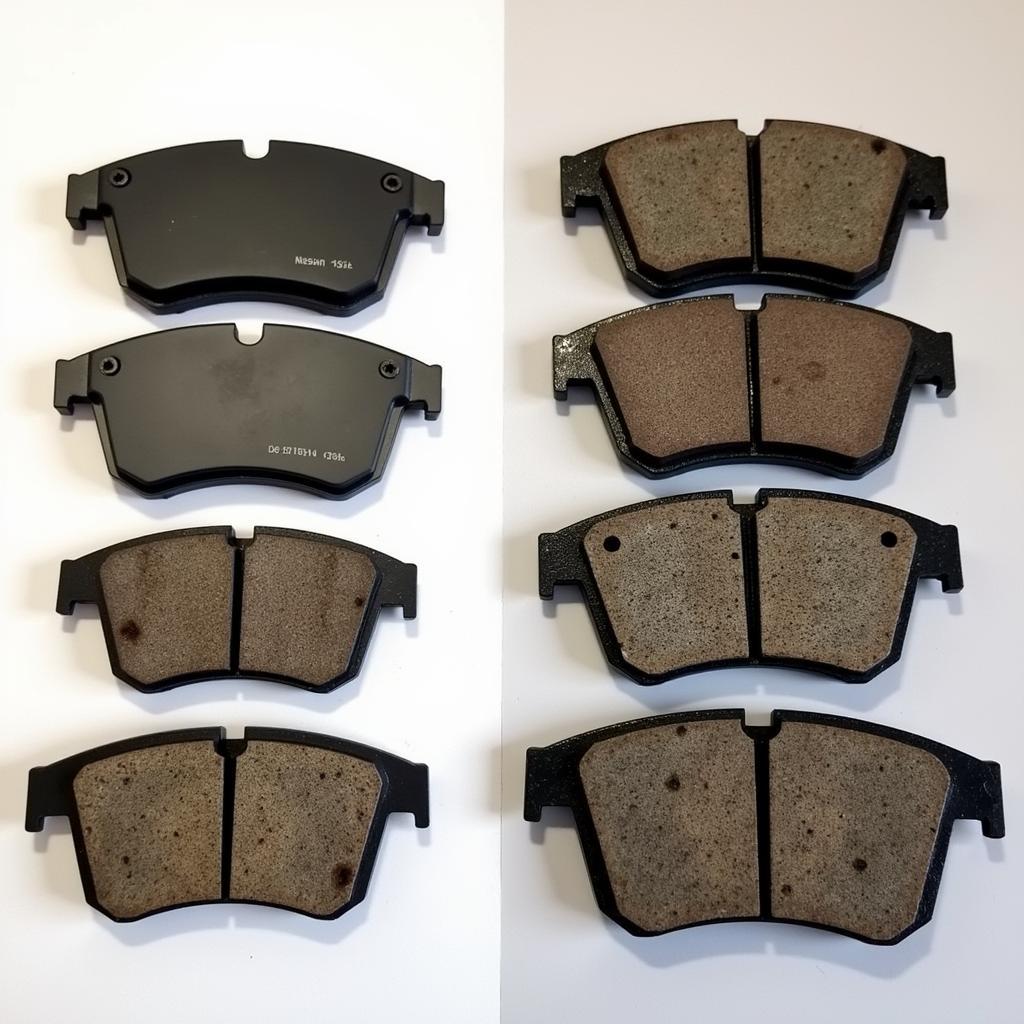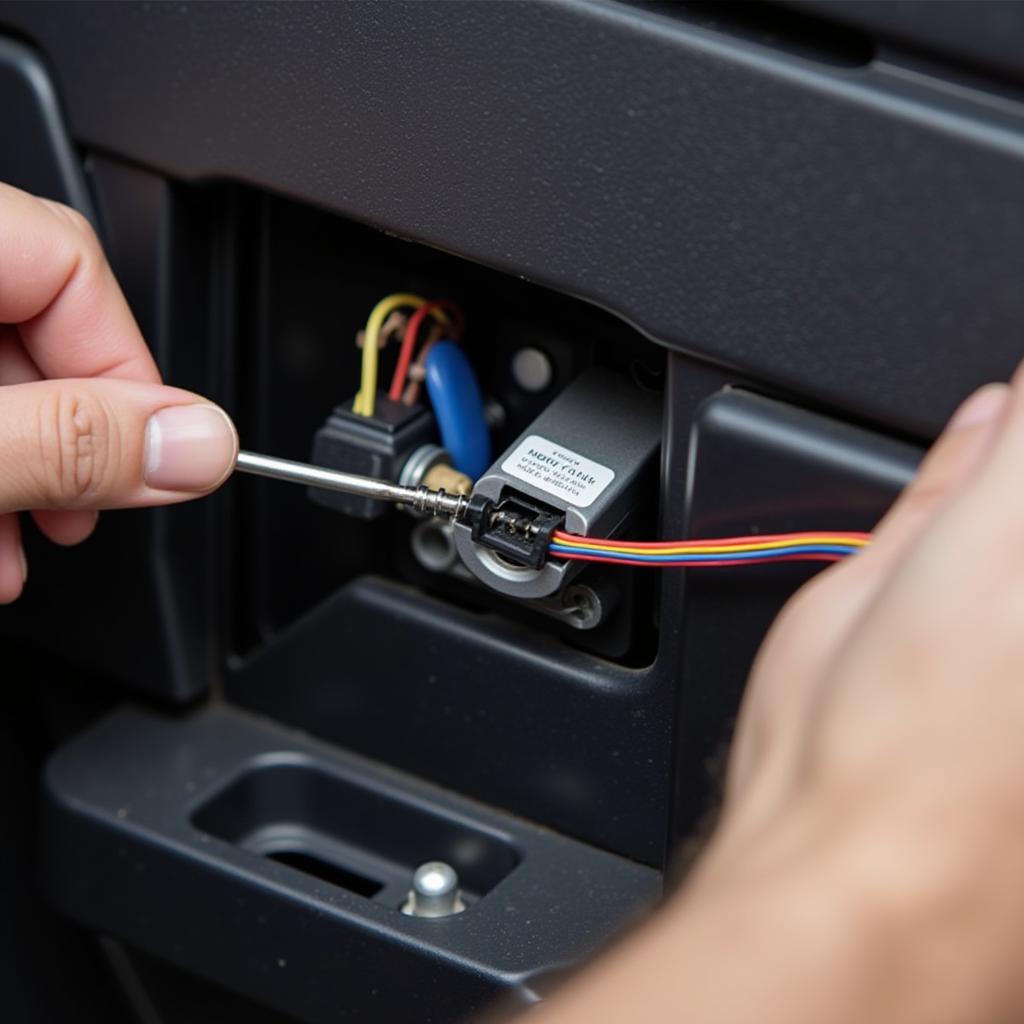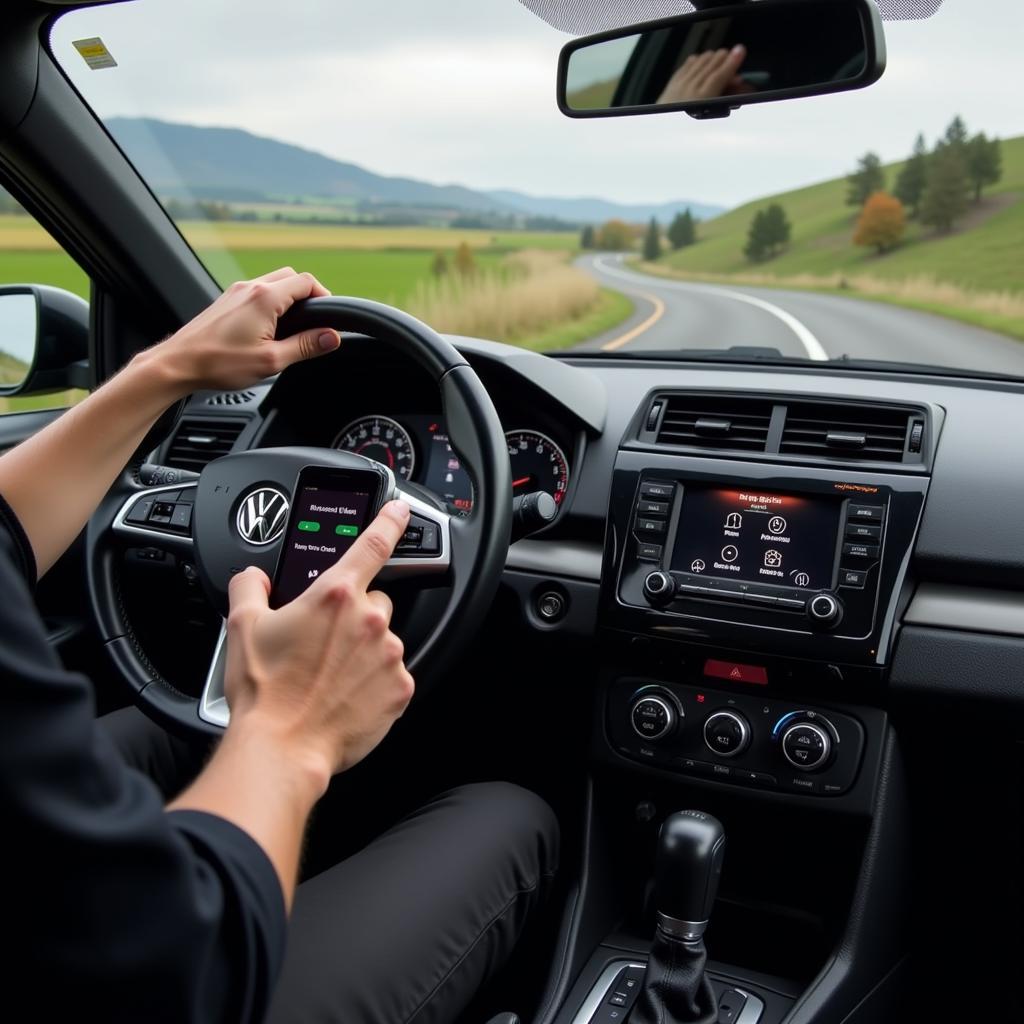The brake warning light on your Nissan Juke dashboard is a crucial safety feature. When illuminated, it signals a potential issue with your braking system that requires immediate attention. Ignoring this warning could lead to brake failure, putting you and other road users at risk. This comprehensive guide will delve into the common causes of a Nissan Juke brake warning light and provide you with the knowledge to address them effectively.
Common Causes of a Nissan Juke Brake Warning Light
Several factors can trigger the brake warning light in your Nissan Juke. Here are some of the most prevalent causes:
-
Low Brake Fluid Level: Brake fluid is the lifeblood of your car’s braking system, transmitting the force from your foot on the pedal to the brake calipers. A leak in the system or worn brake pads can cause the fluid level to drop, triggering the warning light.
** -
Worn Brake Pads: Your Nissan Juke’s brake pads are designed to wear down over time. Once they reach a certain thickness, a sensor embedded in the pad will contact the rotor, triggering the warning light to alert you that it’s time for a replacement.
 Worn Brake Pads on a Nissan Juke
Worn Brake Pads on a Nissan Juke -
Faulty Brake Light Switch: The brake light switch activates your brake lights when you press the brake pedal. A malfunctioning switch can disrupt this signal, potentially causing the brake warning light to illuminate along with your brake lights staying on constantly.
-
ABS Sensor Issue: The Anti-lock Braking System (ABS) in your Nissan Juke helps prevent wheel lockup during hard braking. If an ABS sensor, responsible for monitoring wheel speed, malfunctions or gets coated in dirt, it can trigger the brake warning light.
-
Other Issues: While less common, other issues that can trigger the warning light include a faulty parking brake switch, problems with the brake master cylinder, or issues with the electronic brake distribution system.
What to Do When Your Nissan Juke Brake Warning Light Comes On
Seeing your brake warning light illuminate can be concerning, but it’s crucial to remain calm and take the following steps:
-
Safely Pull Over: As soon as the light comes on, safely guide your Nissan Juke off the road, away from traffic. Continuing to drive with a potential brake issue puts you at risk.
-
Check Brake Fluid: With the engine off and the vehicle parked on a level surface, carefully open the hood and locate the brake fluid reservoir. The reservoir will have a “Min” and “Max” marking. If the fluid level is below the “Min” mark, it needs to be topped up.
** -
Inspect for Visible Leaks: While checking the brake fluid level, visually inspect the reservoir, brake lines, and surrounding areas for any signs of leaks. Brake fluid is typically clear or yellowish and has a slightly oily texture.
-
Avoid Driving Further: If you find the brake fluid level low or notice any leaks, it’s strongly advised not to drive your Nissan Juke any further. Contact a qualified mechanic or tow your vehicle to a trusted repair shop for diagnosis and repair.
-
Seek Professional Help: If you are unable to identify the cause of the brake warning light or the fluid level is full and there are no visible leaks, it’s crucial to seek professional assistance. A qualified mechanic can accurately diagnose the issue using specialized diagnostic tools and ensure a safe repair.
Nissan Juke Brake Warning Light: Frequently Asked Questions
Q1: Can I drive my Nissan Juke with the brake warning light on?
A1: It’s highly discouraged. Driving with a potential brake issue is incredibly risky.
Q2: How often should I change my Nissan Juke’s brake pads?
A2: The lifespan of brake pads varies depending on driving style and conditions. As a general guideline, it’s best to have them inspected every 12,000 miles.
Q3: How much does it cost to fix a Nissan Juke brake warning light issue?
A3: Repair costs vary widely depending on the underlying cause. It’s always advisable to obtain a quote from a trusted mechanic after a proper diagnosis.
Q4: Can a faulty brake light switch cause the Nissan Juke brake warning light to come on?
A4: Yes, a malfunctioning brake light switch can disrupt the brake light circuit, potentially triggering the brake warning light.
Q5: What is the difference between the Nissan Juke brake warning light and the nissan juke brake pad warning light?
A5: The brake warning light is a general indicator of a brake system issue, while the nissan juke brake pad warning light specifically alerts you when the brake pads are worn and require replacement.
Conclusion
The brake warning light in your Nissan Juke is a crucial safety feature that should never be ignored. Addressing the issue promptly can prevent more serious problems and keep you safe on the road. Regular maintenance, including brake fluid checks and timely brake pad replacements, can significantly reduce the risk of encountering brake issues. Remember, when it comes to your safety and the safety of others, it’s always best to err on the side of caution and seek professional help when necessary.



